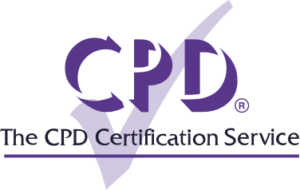In this Support Workers CPD Guide
Why do Support Workers need CPD?

A support worker is a professional who provides practical and emotional support to individuals who need assistance with daily tasks due to disabilities, illnesses or other challenges. They may work in various settings such as residential homes, hospitals or community centres, and their responsibilities can include helping with personal care, medication, household tasks and social activities. The role of a support worker is crucial in enabling individuals to live as independently as possible and to improve their quality of life.
As support workers work with vulnerable people, a Disclosure and Barring Service check is often mandatory for the role. To adhere to the Care Act 2014, mandatory training in areas such as safeguarding, health and safety, and medication administration must also be completed. Much of this can be achieved with CPD.
Some key skills and qualities required for the role of a support worker include good communication, empathy, patience, problem-solving ability, flexibility, and a willingness to learn. Additionally, it is also important for support workers to have a non-judgemental approach and be able to work well as part of a team.
What our customers have to say
Dan King
Mobilisation, Training & Performance Manager

Sophie Aiken
HR Manager

Harriet Lee
Retail Recruitment Manager

What CPD courses do Support Workers need?
Support workers can work with individuals from all different backgrounds and with all different care needs. Due to this, there are a wide range of courses that would benefit a support worker.
We have handpicked some of our top courses for support workers below:
- Acquired Brain Injuries – in this course you will gain detailed knowledge and understanding of what an acquired brain injury is and the diagnosis and treatment process. This course is suitable for those working in a care environment who may be caring for someone with an acquired brain injury, as well as friends and family of someone living with an acquired brain injury.
- Autism Awareness – this course covers the potential causes of autism and the misconceptions that people have about the causes. We will then look in detail at the steps involved in getting a diagnosis and what to expect during the assessment. Medication that can be used to help people manage their symptoms and the side effects of these will be explained.
- Care Certificate – this course covers the 15 different Care Certificate standards and is suitable for new employees working in health and social care roles. This course will provide you with the fundamental skills that are needed in your health and social care job role, to provide quality care.
- Customer Service Skills in Health and Social Care – in this Customer Service Skills in Health and Social Care course, you will learn the importance and benefits of customer service in both health and social care settings. You will also learn about the expectations of the Care Quality Commission (CQC) and the NHS in regard to customer service in the health and social care sector.
- Disability Awareness – throughout the course you will gain awareness regarding the multiple difficulties faced by those with disabilities, and how we can approach this. You will look at the different types of disabilities, and the different laws that protect people who have disabilities.
- Dignity in Care – anyone working in health and social care settings should have detailed knowledge of dignity and why it is important to work in a dignified way. This course will also outline legislation and guidance that relates to dignity.
- Equality and Diversity – in this course we will look in depth at the four main types of discrimination and examples of each. The Equality Act 2010 will be covered and you will learn about the nine protected characteristics and examples of each. Our Equality and Diversity course will finish off by exploring real-life case studies of harassment, bullying and discrimination and you will consider what the effects of these can be on a person’s physical and mental health.
- Hoarding Awareness – in this course you will gain strong knowledge of hoarding to help increase your understanding of the origins of hoarding, as well as focus on why people hoard, what they hoard, and who this disorder affects.
- Moving and Handling in Care – this course will ensure that you understand the risks of incorrect handling in the care sector. The physical harm which can be caused to people will be explored and techniques to assess risk will be introduced. Correct procedures for using a wide range of different lifting equipment will also be covered in this course. Legislation and procedures relevant to care settings will be fully understood upon completion.
- Person-Centred Care – this course is suitable for anyone working in health and social care roles, and will equip you with the skills and knowledge you need to know and apply to ensure you are working in a person-centred way.
A guide to CPD for Support Workers
Support workers are regulated by several bodies depending on the specific type of support work they are involved in. For example, healthcare support workers are regulated by the Care Quality Commission (CQC), while social care workers are regulated by the Health and Care Professions Council (HCPC). These bodies ensure that support workers meet certain standards of competence, conduct and ethics in their work. Continuing Professional Development (CPD) can be highly beneficial for support workers. It can help them to keep up to date with the latest knowledge and skills in their field, which can assist them in providing the best possible care and support to their clients. CPD can also help support workers to identify areas for growth and improvement, and to develop strategies to address these areas.
CPD certificates
A CPD certificate certifies that you have completed learning in that particular subject area and can now be considered more competent in that area. All of the courses with CPD Online College result in you obtaining a CPD certificate when you successfully complete one of our courses. The certificate will be available for you to download immediately, where you can save it on your computer or print off a hard copy.
Logging CPD hours
Anytime that you decide to work on some CPD training, you should record the time that you have spent on it. This will create a log of CPD hours that will give you a straightforward snapshot of the total amount of time spent on your CPD training. Industries often have different requirements for the number of hours to spend on CPD training, but keeping a log will help you to stay on top of this.
Keeping evidence
You should keep evidence of CPD training so that you can draw upon the training activities that you have taken part in and show proof to employers and regulators.
Your logged CPD hours and your CPD certificate can be used as evidence, as well as some other forms of CPD evidence including:
- Notes from independent learning.
- Worksheets from workshops.
- Attendance sheets and notes from conferences.
- Meeting notes from supervision sessions, or mentor meetings.
Renewing CPD certificates
You should renew your CPD certificate every two years so that you stay up to date in your industry. There are many changes in health and social care in relation to safety, promoting independence, and safeguarding, so it is crucial that you stay abreast of these. You can easily renew your CPD certificate with CPD Online College by simply completing a refresher of your CPD course two years later.
























